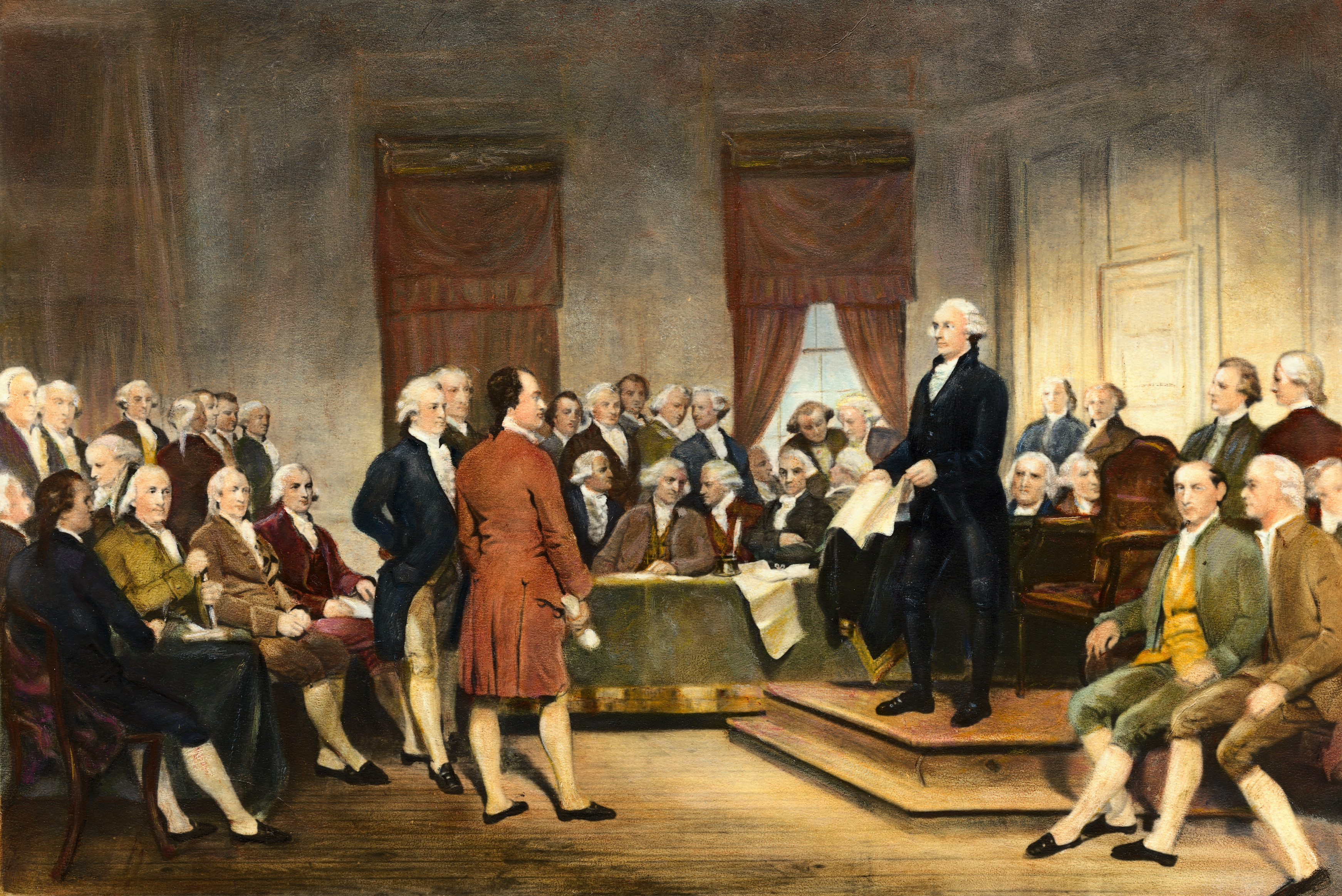This is the one question that every Supreme Court nominee must be asked
What's something you think is a good idea but you think is unconstitutional?

A free daily email with the biggest news stories of the day – and the best features from TheWeek.com
You are now subscribed
Your newsletter sign-up was successful
What's something you think is a good idea but you think is unconstitutional? Or, conversely, what's something you think is a bad idea but you think is constitutional?
Everyone concerned with the Constitution — and most especially Supreme Court nominees — should be asked this question. And if they don’t have an answer — that is, if they think everything they like is constitutional — then maybe they don't really believe in the Constitution.
In many ways, this question defines modern debates over the Supreme Court, and, supposing whoever President Obama nominates makes it to the Senate Judiciary Committee, it will also define the debate over the late Justice Antonin Scalia's replacement.
The Week
Escape your echo chamber. Get the facts behind the news, plus analysis from multiple perspectives.

Sign up for The Week's Free Newsletters
From our morning news briefing to a weekly Good News Newsletter, get the best of The Week delivered directly to your inbox.
From our morning news briefing to a weekly Good News Newsletter, get the best of The Week delivered directly to your inbox.
The question is crucial because it helps delineate the difference between a judge and a legislator, at least in theory. Legislators get to always vote their preferences; judges, however, don't.
For most people, Supreme Court opinions such as last June's Obergefell v. Hodges — the case that legalized same-sex marriage throughout the country — are good or bad depending on their policy preferences. Do they like same-sex marriage? Then it's a good decision. Not like it? Bad decision. Consequently, most people's estimation of our justices mirrors that assessment: Did they vote for legalizing same-sex marriage? Good justice. Against it? Bad justice.
Many people's assessment of Scalia's legacy goes no deeper than this. This is a profoundly unfortunate way of viewing Justice Scalia, a man whose towering intellect deserves more than the description "bigot."
To Justice Scalia, as well as many of his fellow conservatives on the bench, to be a judge was to strive to eliminate his policy preferences from his decision making as much as possible. As he once said, "If you're going to be a good and faithful judge, you have to resign yourself to the fact that you're not always going to like the conclusions you reach. If you like them all the time, you're probably doing something wrong."
A free daily email with the biggest news stories of the day – and the best features from TheWeek.com
Full disclosure: I am an originalist, and I was, and am, a big fan of Justice Scalia. Nevertheless, I often profoundly disagreed with his views, particularly on gay marriage. Yet, even in his vituperative dissents in the gay marriage cases, there was still a sense that Scalia was imploring us to detach our personal opinions about same-sex marriage from the question of whether there is a right to it in the Constitution.
Same with abortion. As Mark Joseph Stern wrote in Slate:
Nobody doubts that Scalia personally abhorred abortion. But his abortion opinions read less like the rants of an arch pro-lifer and more like the pained cries of a dedicated textualist who believed, as a matter of pragmatism and constitutional law, that such contentious issues can only be truly resolved by the democratic process. [Slate]
It will always be an open question whether Justice Scalia was able to fully disentangle his own preferences from his constitutional interpretation and thus practice what he preached. Many criticisms of Justice Scalia's jurisprudence focus on how his purported impartial judging was just a smoke screen for naked policy preferences. Given his staunch conservative disposition, people were right to wonder whether his vote against gay marriage was just thinly veiled homophobia. He did, after all, accuse the Court of "largely sign[ing] on to the so-called homosexual agenda" in Lawrence v. Texas, the case that overturned Texas's prohibition on same-sex sodomy.
Also dissenting in Lawrence v. Texas was Clarence Thomas, often wrongly and unjustly considered little more than Scalia's acolyte or, much more pejoratively, his lapdog (Thomas is actually much more of an originalist than Scalia). In his short dissent, Thomas made the distinction between his policy preferences and his legal philosophy quite clear:
I write separately to note that the law before the Court today "is … uncommonly silly." If I were a member of the Texas Legislature, I would vote to repeal it. Punishing someone for expressing his sexual preference through noncommercial consensual conduct with another adult does not appear to be a worthy way to expend valuable law enforcement resources. [Thomas]
To me, these are the most interesting opinions any jurist can write: When they explicitly disagree with a policy but still vote to uphold it (or vice versa). It is then that we get an inkling, if only for a moment, of a kind of Platonic ideal of judges merely "enforcing the law."
Unfortunately, we too often fail to see even a glimmer of it.
Trevor Burrus is a research fellow at the Cato Institute’s Center for Constitutional Studies.
-
 How Democrats are turning DOJ lemons into partisan lemonade
How Democrats are turning DOJ lemons into partisan lemonadeTODAY’S BIG QUESTION As the Trump administration continues to try — and fail — at indicting its political enemies, Democratic lawmakers have begun seizing the moment for themselves
-
 ICE’s new targets post-Minnesota retreat
ICE’s new targets post-Minnesota retreatIn the Spotlight Several cities are reportedly on ICE’s list for immigration crackdowns
-
 ‘Those rights don’t exist to protect criminals’
‘Those rights don’t exist to protect criminals’Instant Opinion Opinion, comment and editorials of the day